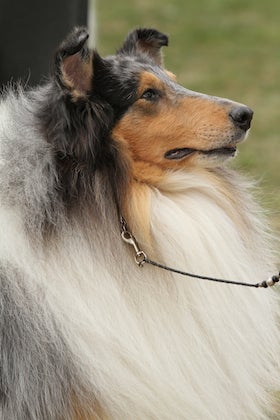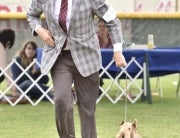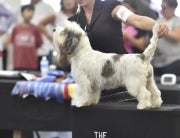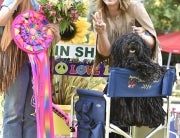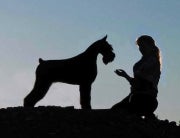By Marianne Sullivan, Collie Club of America, from the March 2016 AKC Gazette
One of the more satisfying aspects of dog showing is handling my own dogs. When I first started out as a teenager, everyone was very helpful. When I returned to showing Collies after a 10-plus-year hiatus, however, I discovered an atmosphere far more competitive and professional-handler-oriented. I didn’t have the resources to hire a handler, and in hindsight this turned out to be a very good thing. To be competitive, I had to improve my skills. I found friends, both Collie and non-Collie, equally eager to learn, and we practiced and helped each other.
I noticed that in my area there were a handful of handlers whose success rate was high, and their skills were significantly above the competition. They seemed to bring the best out in the dogs and make them shine. When in the ring, their dogs would draw all the attention. I wondered, how did they do that?
I also noticed that some exhibitors seemed to be simply “leash holders,” going through the routine correctly but with no spark or oomph to their handling. What was the secret of these all-star handlers? They seemed to have an unspoken communication, and as I more closely observed, their timing and body language conveyed that they knew precisely how to get the most out of the dog. I felt these were important things to incorporate if I was going to improve.
Focus on the bond with your dog
It seems like the professionals have the advantage, but owners handling their own dogs have advantages too. First of all, a relationship with the dog is already formed, and a bond established. While the pros often have numerous dogs to show, the owner can focus on their own dog.
Any handler needs to have the fundamentals of showing down—gaiting, baiting, grooming—but there is an additional component that seals the relationship. What must be communicated is “I know what I’m doing—trust me. I believe in you, and I will not fail you.”
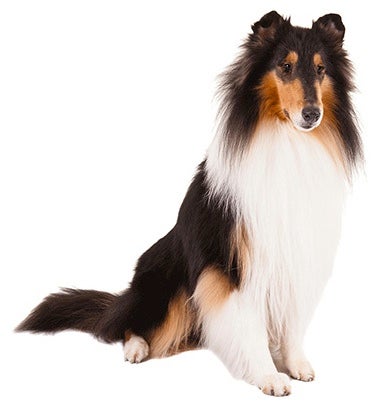 If the dog is stressed, not showing well, or misbehaving, I suspect the handler has not succeeded in establishing that relationship or done their homework, has not communicated that trust between them. How often I have seen a dog stress, and yet the person holding the lead continues to shove bait in their faces, when it is clearly not working. Time to rethink and change your behavior, then the dog will respond!
If the dog is stressed, not showing well, or misbehaving, I suspect the handler has not succeeded in establishing that relationship or done their homework, has not communicated that trust between them. How often I have seen a dog stress, and yet the person holding the lead continues to shove bait in their faces, when it is clearly not working. Time to rethink and change your behavior, then the dog will respond!
Fine-tune your handling skills
Half the battle is won if you show up with a clean dog who shows well and gaits in a straight line. But that’s only half! The other part is that elusive something that makes the judge give you an extra look.
For example, be aware of when the judge is looking at your dog, and create a dynamic picture. One way to do this is with some small movement such as turning the dog’s head towards the judge. Judges have priorities, so challenge yourself to figure out what they like, and then present those virtues in the ring.
We may not always convince the judge our dog is the best, but by creating that mental attitude, we also establish a habit of showcasing the positive in our dogs and appreciating the virtues in the competition.
Going to shows gives me the opportunity to observe and learn: to study other dogs, handlers, and the judges. So despite the outcome, I always go home a winner, because I have taken much more with me than just a win.
—Marianne Sullivan, Millknock@embarqmail.com


